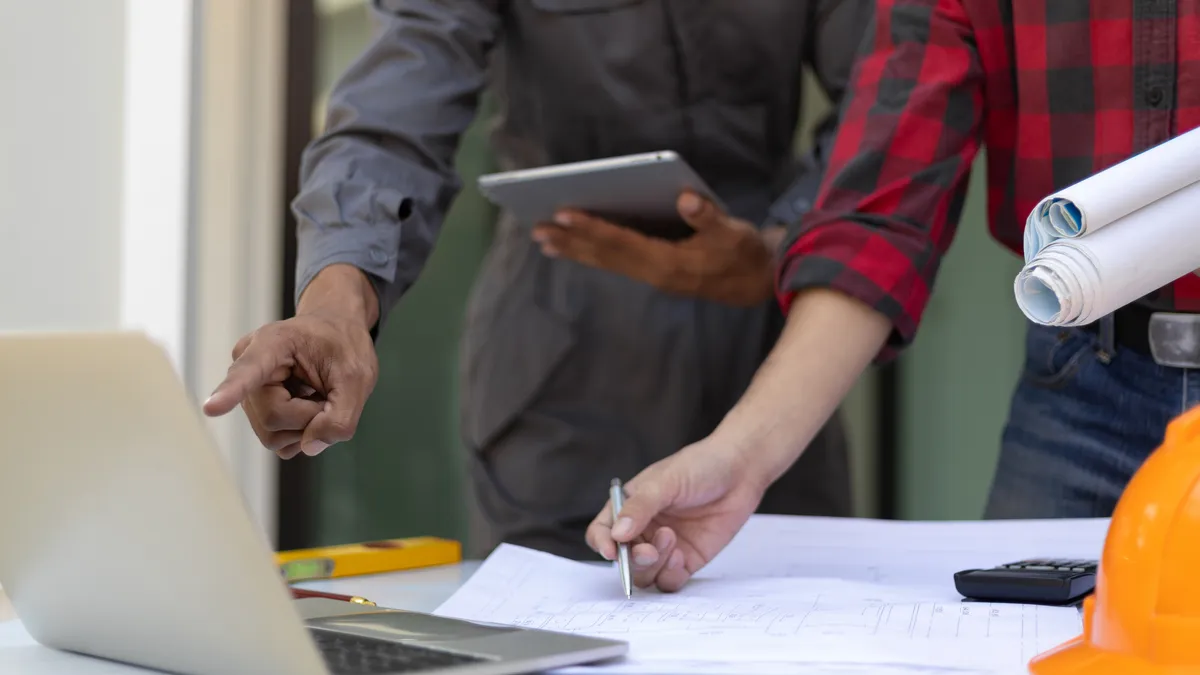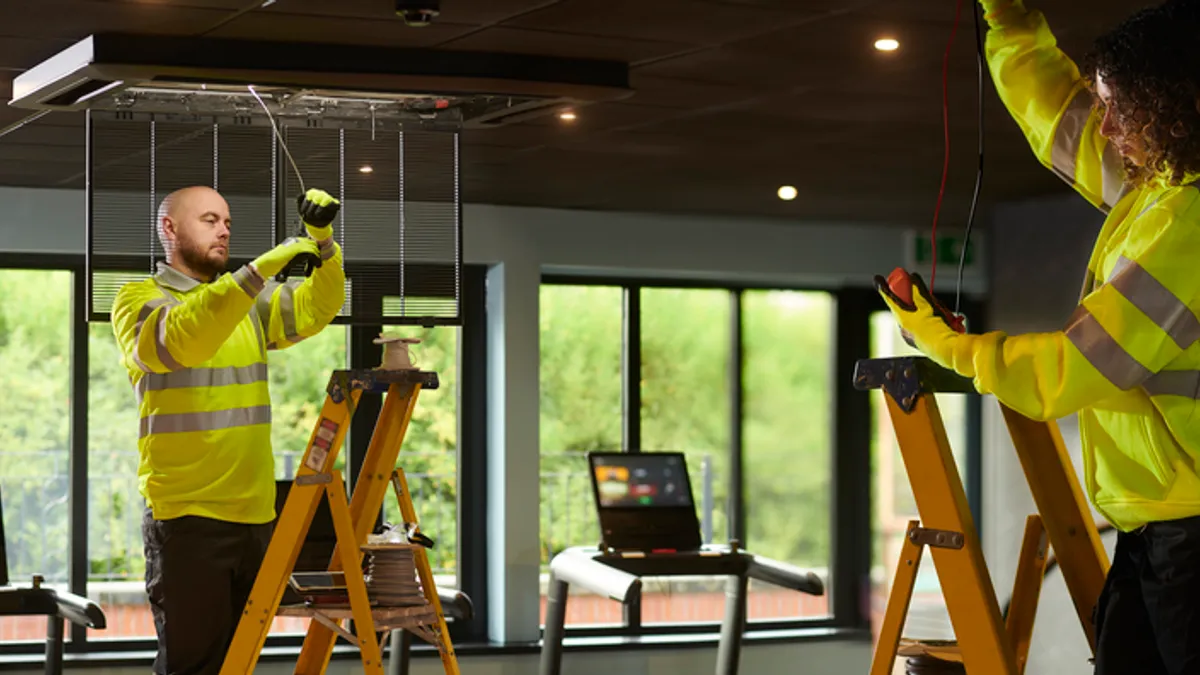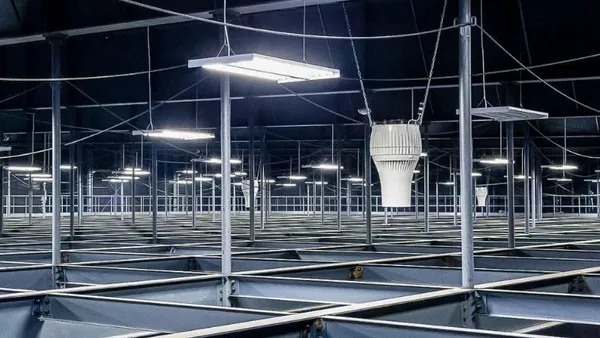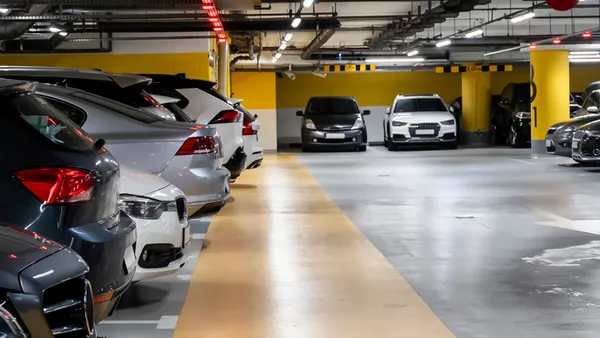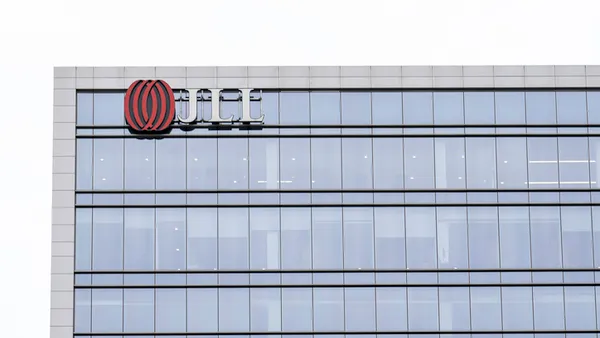Dive Brief:
- Sustainability is a core consideration across business functions, with customer-required reporting, public reporting and supply chain compliance reporting more common than two years ago, according to research by Johnson Controls and Forrester Consulting.
- However, only 10% of sustainability leaders surveyed say their building systems and equipment are fully integrated, the report found, and the lack of data integration systems and internal expertise is slowing progress toward meeting carbon reduction goals. The report states that 67% of respondents cite this lack of cohesion as a cause for reduced efficiencies and 59% say it has increased regulatory penalties.
- Seventy-three percent of respondents say their organizations do not have the necessary technical expertise to optimize building systems, and 40% said they lack lacking internal skills to assess environmental impact. Only one-third believe their organizations can sustain progress toward sustainability goals in the event of a 10% budget cut.
Dive Insight:
The survey polled 3,445 leaders responsible for smart building strategy in their organizations. While 49% of leaders with a sustainability title say their organization has a carbon reduction goal of 75% or more across its building portfolio, 80% of IT leaders and 67% of CEOs report the same objective, the report found. Forrester, which Johnson Controls commissioned for the study, says these differences indicate that many organizations “lack a single source of truth” when it comes to the visibility of high-level sustainability goals.
To narrow this divide and keep on track with commitments, leaders are looking for technical and strategic partners to help future-proof sustainability strategies, integrate their building systems and provide easy-to-use platforms that can serve as a single source of truth across an organization’s business operations, the report found.
A majority of leaders surveyed believe in the potential of smart buildings to improve sustainability, with 69% percent of respondents saying the technology can help their organizations accelerate sustainability initiatives. Sixty-one percent noted that replacing old equipment to increase efficiency is the most impactful strategy to improve the sustainability of owned or leased spaces. Fifty-six percent of respondents pointed to adding or upgrading building automation controls as a key driver, while 45% said they place emphasis on upgrading air quality and water infrastructure monitoring devices, the report said.
Roughly a third of respondents said they expect artificial intelligence and machine learning technology to have a significant impact on improving the sustainability of company-owned spaces by providing actionable recommendations that prevent downtime and optimize efficiencies before losses occur. When seeking potential smart building solutions, over two-thirds of respondents said they look for single platforms that can be integrated into all building systems, used for all sites and use cases and are easy to use for cross-departmental teams.
The importance of cross-departmental functionality becomes more apparent in the emphasis on sustainability across business lines, with the report noting that sustainably improving the efficiency of operations is a top focus for security, sustainability and building environment systems decision-makers. While 57% of security leaders place sustainably improving operations as a top priority, only 26% collaborate with sustainability teams today, the report notes.
As environmental reporting regulations continue to gain steam in the U.S. and abroad, various stakeholders, including customers, employees and investors, continue to demand progress and transparency in sustainability reporting, the report says. Siloed data, a lack of standardization in environmental impact reporting and infrequent measurement pose obstacles to meeting this demand and jeopardize advancements toward sustainability objectives, it says.





